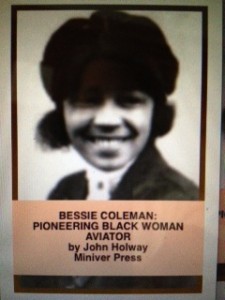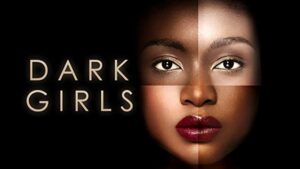New Aspire Series About African-American Faith Leaders: The Scroll
Posted on February 6, 2013 at 8:00 am
The Scroll is a new series from director Parrish Smith shown on Magic Johnson’s Aspire Network featuring intimate, inspiring interviews with more than 50 African-American clergy.
Some of the faith leaders featured in the documentary are: Bishop T. D. Jakes, Rev. Al Sharpton Jr., Rev. Bernice A. King, Dr. Calvin O. Butts III, Rev. Dr. Jamal Bryant,Bishop Noel Jones, Pastor Floyd H. Flake, Bishop Kenneth Ulmer, Bishop Charles E. Blake, Rev. Dr. Della Reese Lett, Bishop Paul S. Morton, Pastor A.R. Bernard, and Bishop Joseph L. Garlington.
Smith generously took some time to talk to me about the series.
What surprised you most about making “The Scroll?”
How long it took to make it! It was supposed to take one year, but it took three years to get access to the ministers, to get through their staff. We got rejected, we would fax and call and and email and talk to assistants and they would say “who are you?” We got no’s for a long time. After a while, the yeses started to come through but the process took a long time.
What made them reluctant to participate?
Ministers and pastors have bulls eyes on their backs. People have bad intentions and want to exploit them. A lot of people see pastors as crooks. One pastor gets caught in a scandal and all of a sudden all pastors are bad. So many ministers are protective. And there’s the scheduling problem as well. They have traveling ministries and the scheduling is difficult. But the primary problem is they don’t know who you are, and that’s understandable.
Were some of them concerned that revealing too much about themselves would interfere with their ministry?
Not necessarily. We interviewed a few people we did not use because they weren’t being open and forthcoming. But mos of them were.
What makes somebody a great preacher?
A minister told me that “a great sermon is the one you need at that particular time.” A great preacher is subjective. But perhaps he tells a story about how he overcame obstacles. And perhaps you are sitting in the congregation going through something and it hits you at that time and hits other people at that time. A great preacher is someone who can deliver a great message and a timely message from the heart. But it comes from God; it doesn’t come from them. They move themselves out of the way and let it flow through them to the congregation.
What is the importance of music in the church?
Music is a form of ministry, another form of prayer. I know some people who really don’t get much out of church or out of the sermon, but they do from song. Particularly in an African-American church, that tradition of music is historical in our culture. Old gospel spirituals, old hymns, have been with us for a long time. It’s a huge element in church.
Is humor important in ministry?
Yes and no. Humor can help deliver a message. But some people just want a strong, powerful message, very direct. Some people think if it’s humorous, it’s not too strong. I like it. I think it helps to ease what they’re saying. I know ministers who use humor and some who don’t.
What do you think about congregations taking advantage of new technologies to reach people?
If you stay home and watch church, you’re missing the fellowship. If you’re at home watching it online you’re missing the camaraderie that you get in church. But you have to change with the times. You have to evolve and transcend the technology. You can reach people who can’t come to church. They can watch and still get the message.
How can churches reach out to younger people?
Some churches and some denominations are more traditional, like many AME churches. They can lose the younger audience. But if the pastor is young and the service is more upbeat, they can appeal to a younger crowd. I was raised in a church that was very traditional. I got very bored with church. I went to college and didn’t go to church. It wasn’t until I heard Kirk Franklin and more modern gospel that it brought me back to church, a church that wasn’t as structured and traditional, with shorter services. The message was still there but the organ was replaced with more upbeat music. That brought me back.
What do you want people to take away from watching this series?
It’s all about faith and hope. We all go through trials and tribulations in life. Hurricane Sandy, Katrina, the shooting in Connecticut, natural disasters and personal challenges. “The Scroll” is about faith to help us Ministers are often unsung heroes. We are distracted by the small percentage who are in the media for their mistakes instead of focusing on the good that most of them do. Ministers are very smart, they’re great orators, and they give so much. We don’t see them teaching children and going to hospitals and inspiring people every day, all the things that they do. We see them on Sunday but they do so much more. And “The Scroll” is a homage to my father, who was a pastor.



